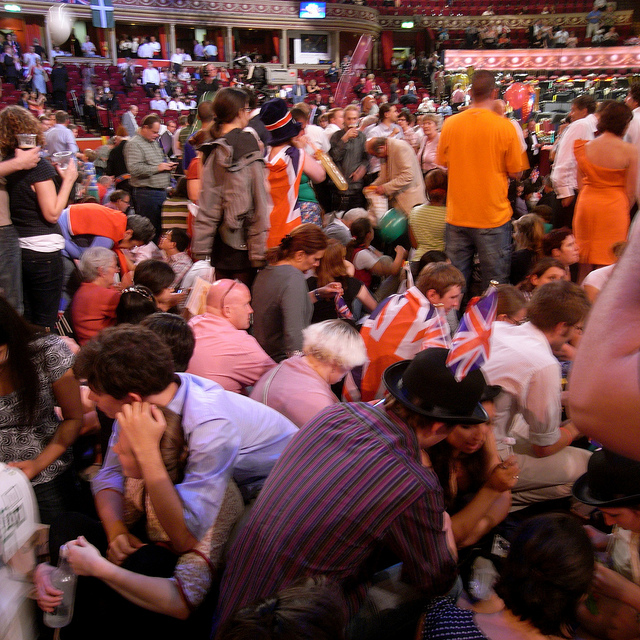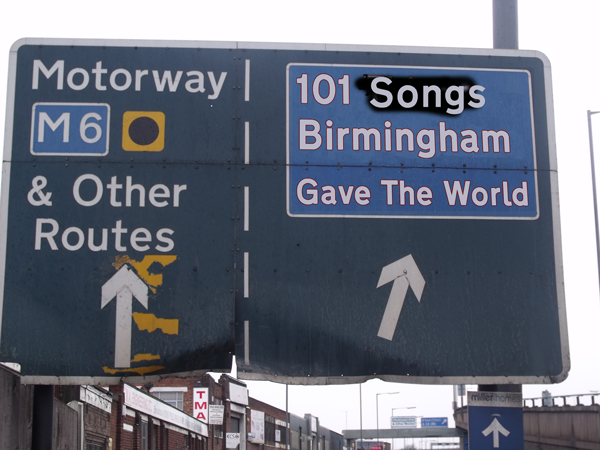I’m Howard. I’m part of this here Birmingham miscellany called Paradise Circus – an ongoing love letter to a battered city. Paradise Circus writes, films, photographs, draws, makes and records things about Birmingham. I am, we are, Jon Bounds and Jon Hickman, Craig Hamilton and Danny Smith, and a number of other people who want to contribute to a conversation about what the city is, was, and could be. We weren’t always Paradise Circus and we used to be famous. We could have been contenders, but we threw it all away. You should too. And in this article, originally published on Contributoria (CC licensed), I’m going to tell you why.
The Small Room On Big Wednesday
Editor’s note: Some time ago we started working on a story about Snobs. Darren sent us this to use. It’s lovely. He told us ‘No tongue in cheek here, it’s a straight up poem about meeting my future wife at the Big Wednesday night in the mid ’90s. Love Snobs and have great memories of the place’. This poem is quite a big part of the story we are still writing, but we wanted to share it with you now, the day after Snobs as we all knew it closed. If you have anything to tell us about Snobs use the comments, and let us know if we can nick your story for our own (Jon H)
The Small Room On Big Wednesday
He was a vertigo-liver, but for tonight he’ll spin.
‘Just gimme some more!’
The unworn denim sleeves are a counter balance,
but it’s so fast, he’s seeing the inside of a potter’s wheel,
covering a vase from within, painted with a smear of ruby spot lights.
‘Pass the peas, like the used to say, pass the peas…’
They never talk; he’s only heard her mouth ‘Alright?’ to him all summer,
but they know each others’ moves instantly:
a midnight jigsaw of skin, sin and soul.
‘Doing it in the park, doing after dark, oh yeah, Rock Creek Park…’
Just be in a fag cloud’s distance from the DJ booth and it’ll happen,
tattooed by the same violet beams – a regiment line appears –
feet in-line, dance formation conceived,
45-degrees to 360-degrees, trainers played the parquet floor like a stylus on a record:
‘It’s a family affair!’
He thinks this is the closest he will ever get to women;
he’s soaked, his skin has been crying out of happiness all night,
but thinks: ‘I can’t hug and sponge sweat on your dress.’
The boy will be thinking about tonight for years to come,
in a still, warm house with a dawn storm roaring outside,
after they are married.
Rings
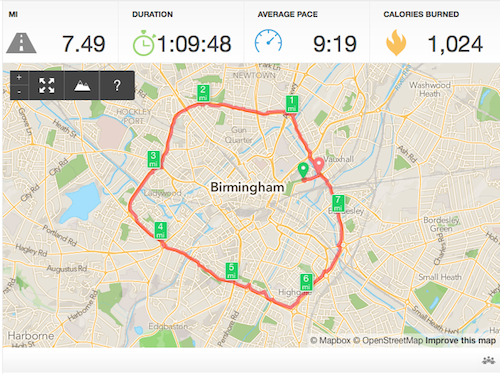
“It could just be dehydration talking but I can feel the city. Can you feel the city?”
We’ve paused to cross Bristol Street. Neil looks at me: is that concern, or pity?
“Like circles. It’s all circles. Spinning. Like we’re making a circle, but so is the city, and the Earth, they’re moving too. It’s a connection.”
The Green Man is alight. We’re off. I stop talking, thank goodness. I sound stoned.
Earlier I told Jon Bounds what Neil and I were going to do this lunchtime. Which way should we run?
“It’s Autumn. Always go anti-clockwise in Autumn.” But it feels like summer. “The Met Office say Autumn starts in September.”
So we did it. I’m not sure what we did, but I think it might have been magic.
101 Things Birmingham Gave The World. No. 59: The 45th President of the USA
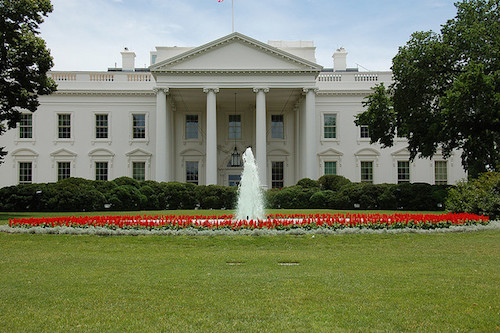
On Tuesday, November 8, 2016 voters in the USA will choose their 45th President. If it’s not Hillary then Hillary will at least be the story, and behind every great woman is a man and behind that man is a song and behind that song is a woman and that woman is from Bearwood, behind which is: Birmingham.
The song that catapulted Bill Clinton to the presidency was Don’t Stop by Fleetwood Mac: a hopeful song forged in adultery, a message between two parts of a powerful professional couple whose careers were intertwined.
Don’t Stop was written by Christine McVie who grew up in Bearwood, the daughter of a concert violinist and music teacher. She studied art in Birmingham and played in bands, getting connected within the music scene. Her own career was going pretty well but it wasn’t until she met and married John McVie, and then joined his band Fleetwood Mac that she really found success in the music industry. Both partners to the marriage found greater success during their period of professional and marital partnership then they had before, peaking with Rumours the album that gave us Don’t Stop – Bill’s election theme – and the tour that preceded the McVie’s divorce.
McVie has said that the song is about her feelings about the break-up of her marriage. As she’d also written another song on the album about how much she was enjoying her affair with Fleetwood Mac’s lighting director, this might seem bastardly behaviour but it was pretty standard in the Mac at the time. Christine, being an honest Brummie type, at least wasn’t as bad as Lyndsay Buckingham whose contemporary practise was to write songs about how he didn’t love Stevie Nicks: and then give them to her to sing. This author likes to cast her in the role of Bill and so we look again at the lyrics, hopeful but also personal, a love letter to Hillary perhaps:
“Don’t stop, thinking about tomorrow,
Don’t stop, it’ll soon be here,
It’ll be, better than before,
Yesterday’s gone, yesterday’s gone.
Don’t you look back,
Don’t you look back.”
What’s next? Hillary in 2016, that’s what.
Image CC Ableman. Fleetwood Mac facts checked by Howard.
101 Things Birmingham Gave The World. No. 58: The Last Night of the Proms
As the orchestra parps, the squiffy toffs bray, and the BBC commentators struggle with pitching their insight towards an audience that pretty much only wants to watch for the 1812 Overture, please remember to direct some of your swelling pooterish patriotism towards Birmingham. For without the global city there would be no local musical pride.
The Proms were launched in 1895 by some people in London, but they were not the first regular musical festival season, not by a long way. That may well have been the Birmingham Triennial Musical Festival which pre-dated the proms by over one hundred years.
That first music festival in Birmingham, held over three days in September 1768, was to help raise funds to complete the new General Hospital on Summer Lane. It took another event ten years later in 1778 to achieve the funds to open the hospital in September 1779. A further five years on, in 1784 the performances became the Birmingham Triennial Musical Festival, and after calling it that they decided to run it every three years.
It was so bloody popular they built the Town Hall (in 1834) to house it, and it took the War to End All Wars to end it. But that spirit lives on, every September: with added plastic Union Jack bowler hats.
And the Last Night of those proms wouldn’t be the same without the Pomp and Circumstance of one Edward Elgar who was Professor of Music at the University of – wait for it… – Birmingham. He wouldn’t be where he is today without the city or its musical ambitions, four of his major choral works were commissioned by the Birmingham Triennial Music Festival.
Birmingham, land of hope and glory.
Image CC By: Steve Bowbrick
12 reasons why Birmingham should banish Tolkien
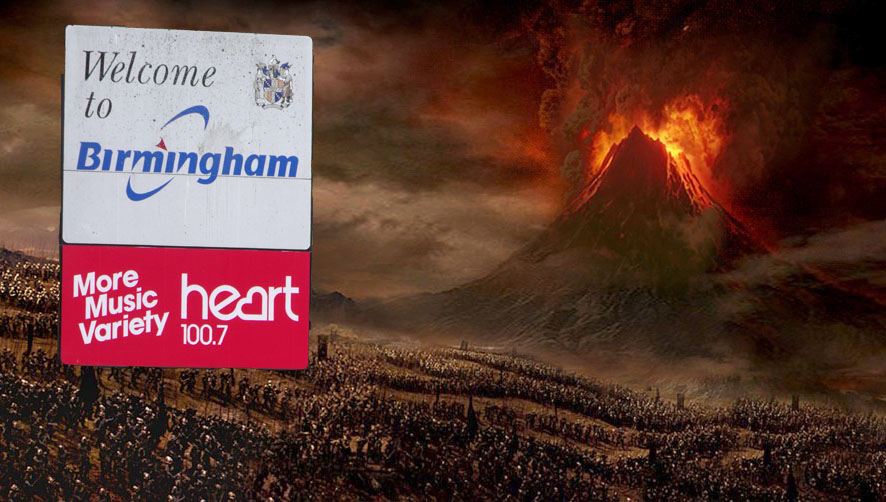
JRR Tolkien was, by all accounts, a lovely bloke. His books might be badly-written overlong prose in need of an editor which gave birth to an era of badly written, overlong “high-fantasy” sagas, but as a human being he was, from what I can tell, beyond much reproach.
Tolkien, as anyone who’s read a ‘Birmingham’s dead interesting and that’ article can tell you, came from Birmingham and, because he’s dead famous, people in Birmingham will, on occasion, embrace this figure from our history and celebrate his roots.
I’m here to explain why people who love Birmingham should not celebrate JRR Tolkien’s residency in our land. In fact we should do the opposite: ignore the hell out of him and his deluded fans.
Continue reading “12 reasons why Birmingham should banish Tolkien”
A Literary Map of Birmingham
Flushed with the success of our 101 Things Birmingham Gave the World Kickstarter, for which we thank you all, we’re thinking of expanding into other types of merchandise.
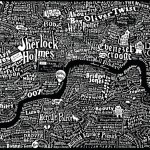 Impressed by Anna Burles’s Literary London Map, we’ve taken stock of all of our city’s artistic heritage and produced our own.
Impressed by Anna Burles’s Literary London Map, we’ve taken stock of all of our city’s artistic heritage and produced our own.
“A fine art print map of the borders of Birmingham featuring characters from art based in Birmingham. The famous and infamous. And also the less well known. Those with an amazing moniker or brilliantly conceived nickname who are a credit to their creator. Each character has been plotted in the corners of the city they most liked to roam or chose to call home (sometimes on Her Majesty’s Pleasure). Combining hand-drawn typography and illustration, the posters are available now, framed for £29, unframed for £13 (both + P&P).”
See it in all it’s glory:
101 Things Birmingham Gave The World. No. 57: Exchange Students
When we were at school a mate of mine would occasionally turn up at things during the summer with a weird sidekick: a French kid called Xavier. Xavier was an exchange student, sent over for weeks at a time to learn English how it is really spoken. Unfortunately for M. et Mme. Frenchie, they’d sent Xavier to hang out with a load of teenage boys so all Xavier learnt was how to say “I ave gaz” and then belch very loudly.
But Xavier wouldn’t have got that far if it wasn’t for Birmingham for we had our very own exchange student, America’s Benjamin Franklin, who used to come over to brush up on science and invention as it really happens by spending weeks in the 18th century working alongside the gentlemen of the Lunar Society who, it turned out, actually did have gas.
Photo CC BY: Robert S Donovan
101 Songs Birmingham Gave the World
As part of our making our 101 Things Birmingham Gave the World book, we promised to make an ‘album’ – an album of 101 songs that Birmingham gave the World.
Our rules were simple — the songs couldn’t have existed in this form without the city of Birmingham. That means Brummie songwriters, musicians, instruments, recording studios or subjects. Where the connections are a little more tangential, well we’ll let you work those out, and you can hassle us and each other in the comments. The other rule: it had to be on Spotify, so no Funky Moped, or Brummie moptops The Beatles.
We’re not saying that it’s the best 101 songs that Birmingham has produced*, but it’s a fantastic 6 hour listen — and of course it will finish with Mr Blue Sky.
101 Songs Birmingham Gave The World: Now that’s what I call Paradise Circus.
See the full 101 rundown here:
The Wilko Report: Copy, right?
This article was commissioned by backers on the ‘crowdfunding’ journalism site Contributoria, but was not published. However as it is CC licensed we are able to publish here. Contributoria members are able to see the article’s production history.
Local newspapers are fighting a war against the web for digital attention — their advertising revenue and their lives depend on it. But are some fighting more dirty than others: reading smaller websites and ripping off their content?
If this were a case of copy and paste it would be solved easily. If it were a case of news stories it would be just what newspapers have been doing to each other since the first coffee house pamphlets — reporting what’s out there, borrowing each other’s exclusives. But this is more insidious: newspaper websites now trade in non-news pieces and ideas and content for these can be taken from anywhere. Possibly you.

